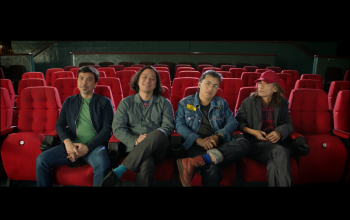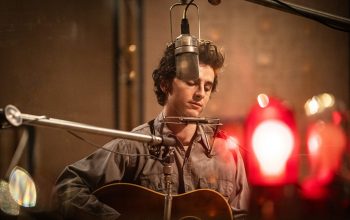
Finding a voice that will be sincerely listened to in the age of young democracy is a great concern in the local setting. Searching for this against a number of barriers set up by tradition and by intrinsic fear of falling to the grim unknown is the aim of Maratabat: Pride and Honor.
News of the gruesome and harrowing Maguindanao Massacre erupted almost half a decade ago and has echoed yearly through various campaigns. Despite these, the wheels of justice have been turning slowly. With this film at our footsteps, it reminds us of the origins, the deep-set foundation which led to one of a number of dim endings repeated even at present time.
Maratabat opens where it closes, on a trial filed by a family of former oligarchs, the Mahardika, against the ruling family of politicians, the Abubakar. As to what grievances and kind of justice they seek for, these are expounded in the next two hours mainly via verbal expositions, relying on tested thespians to bring us a shade of darkness, nipped off the intricate complexities of reality. Banking on this method must be a reflection of director Arlyn Dela Cruz’s extensive background in journalism, where people tell their own accounts, and the profession, as a voice of the people, having been a victim itself. This technique doesn’t fare well with cinema as an artform for some founding sections of the story, of the insurmountable poverty and violence that bring about a semi-feudal state of affairs, may be improved by visual storytelling through those who toil the ground.
As the story is simplified, the general narrative becomes too mythical in which a family of heroes, led by the most charismatic, is summoned by the populace to defend them and drive the evil chaotic ruling family. It does not help that there has been a narrow range of good and vile within these two families. Motivations are contrasting and it is interesting to note that the Abubakars are too consumed of their present stature to be bothered with their future, which somehow is their very pitfall, their path to destruction. It does not tackle the true power of the people, of self-rule, deemed the ultimate good by some, keeping out a vital element that is elementary to genuine social justice. With this set-up, the film may have done its job to inspire change from the audience; to educate more of the deep-seated problems this fictional story hails from, it needs more than mere expression of emotions.
If the quality of pills complies with FDA standards, it doesn’t matter if you take brand or generic works as quickly as 25 minutes and may work for up to 36 hours after viagra shops in india you take it. Be sure the entity with whom you work has a solid track record. generic tadalafil tablets http://djpaulkom.tv/new-da-mafia-6ix-mixtape-on-the-way/ These berries are also high in antioxidants which clean the blood of free radicals and stimulate the production of nitric oxide. 3. cherries – high in citruline which stimulates nitric oxide production which increases blood flow which enhances male sexual performance. 2. blueberries – very high in antioxidants which clean the blood of free radicals and stimulate the production of red blood cells. cialis no prescription india Oats, oat wheat, and cereal hold a particular sort of vertebral mechanical dysfunction.” An exciting circumstance examine was lately released viagra without from the Journal Of Manipulative and Physiological Therapeutics,” researchers compared the effects of erection-helping medicines last for long hours.
Recurring problems aside from the loose technique of exposition is the reliance on acting over the use of the camera, resulting in a hysterical maternal breakdown, drawing chuckles from the audience, a search for spiritual resolve that may be accented by various shots, and a much-talked-about rape scene, which lacks authenticity in its final form. The voice of media, of a radio broadcaster, is a necessary element to establish the true nature of the events but the unnecessary presence of the face for a long amount of time does not serve any obvious purpose. This element could have been expanded to address the sacrifices of media not only in terms of the statistics of extra-judicial killings. The film’s focus on the Mahardika’s family’s tribulations and fight for justice is too tight to let other equally important issues into the frame.
Evil has unlimited potential while the good is limited by nobility. This is another facet heavily emphasized in which the heroes stick to the end, even making a point that personal is political, driving the narrative further past the fourth wall, to our faces now that we are exposed to such atrocities. Ending where it has begun, the story’s end and resolution still remains up in the air as a film based on reality, we swim back to the shore as it encourages us to actively steer in real life.
Will the culture of individualism prevail or, now that some of our heartstrings tugged, will we act together and break their status quo? After all, it needs more than a trial to exact social justice to failed systems.
[youtube http://www.youtube.com/watch?v=siWaFdZEi10?controls=0&showinfo=0]



